|
1. Flavor. Taste it!:
Most purchased produce in your local supermarket has traveled hundreds to thousand of miles, even crossing
the equator and oceans. Time kills taste. The best chefs and cooks of the world know how to combat this fact. Their restaurants
have gardens, even in their backyards and rooftops. So growing your own herbs, fruits, and vegetables will be a new experience
for your taste buds and tummy! Until you harvest your abundance, and take that first bite into that scrumptious plant, you
won't know what you are missing!
"10 Reasons Why You Should Eat Local" - Eco Watch
Local Foods; are They Better for You? - Knoxville District Dietetic Association
"The Effect of Transport on Nutrient Content - Result: Nutrient Loss"
2. Soil sources are compromised.
"It can take 1,000 years to form an inch of soil." - USDA
Agricultural Research Service
Soil Contamination, Degradation & Erosion: Concerns, Warnings, & What to do About it
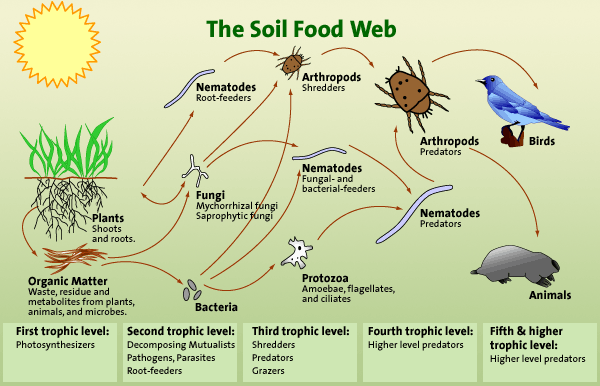
|
| UNDERSTANDING THE SOIL FOOD WEB APPROACH (Click Picture) |
What is erosion?
Wind or water erosion is the physical wearing of the earth's surface. Surface soil material is removed in the process.
Why should we be concerned?
Erosion removes topsoil, reduces levels of soil organic matter, and contributes to the breakdown of soil structure. This creates
a less favorable environment for plant growth.
In soils that have restrictions to root growth, erosion - decreases rooting depth, which decreases the amount of water,
air, and nutrients available to plants.
Erosion removes surface soil, which often has the highest biological activity and greatest amount of soil organic matter.
This causes a loss in nutrients and often creates a less favorable environment for plant growth.
Nutrients removed by erosion are no longer available to support plant growth onsite, but can accumulate in water where such
problems as algal blooms and lake eutrophication may occur.
--USDA Natural Resources Conservation Service
Soil Quality Information Sheet (USDA)
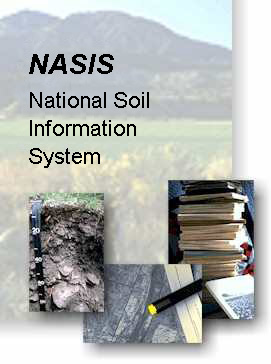
|
| UNITED STATES DEPARTMENT OF AGRICULTURE |
"Understanding Soil Risks and Hazards" Using Soil Survey to Identify Areas With Risks and Hazards to Human Life and Property
[Document]
| SCAN THE WORLD & FIND OUT WHAT SOIL IS MADE OF!!!! |
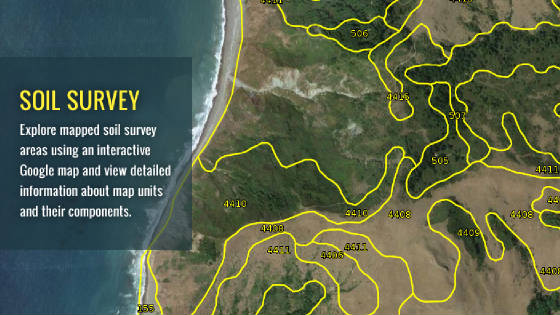
|
| ALSO: SOIL WEB APPS! University of California - Davis |
Wind Erosion
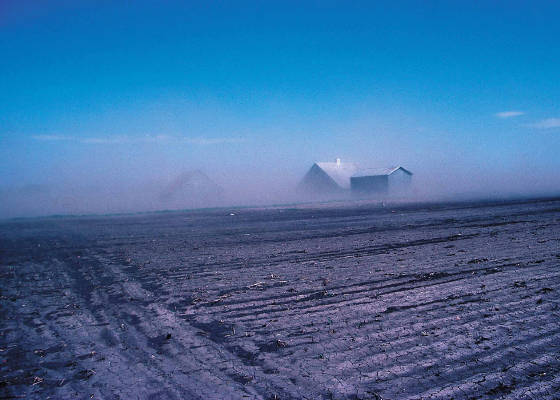
|
| WIND EROSION |
| WIND EROSION RESEARCH - U.S.D.A. |

|
| WIND EROSION RESEARCH - U.S. DEPARTMENT OF AGRICULTURE |
Facts About Wind Erosion
Water Erosion
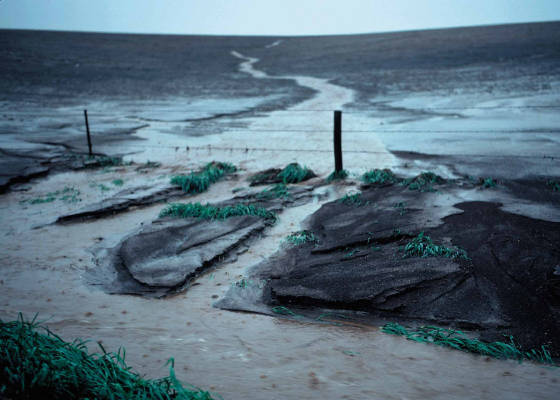
|
| WATER EROSION |
National Soil Erosion Research [Water Erosion] U.S.D.A.
Deforestation is Land Erosion
| SOIL QUALITY |

|
| UNITE STATES FOREST SERVICE |
| "FOREST CARBON SEQUESTRATION & CARBON MANAGEMENT" |
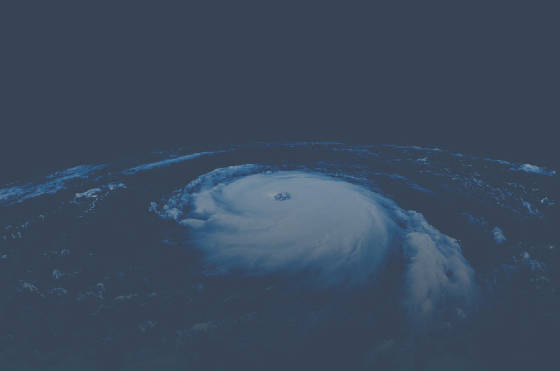
|
| U.S. GLOBAL CHANGE RESEARCH PROGRAM |

|
| NATIONAL RESOURCES CONSERVATION SERVICE - USDA |
____________________________________________________________________________________________________________________
Soil degrades by losing fertility, which is invisible and rather unstoppable. Why? As the soil loses its functionality, that
of producing food, the costs for past mismanagement becomes an increasing burden. Soil loss leads to other kinds of damage.
On farms, as income tumbles while costs soar, there comes a point at which the farm must be abandoned. Much of the world's
soils have been lost this way.
MAN MADE EROSION:
* Deforestation: forest soils contain much organic matter, indeed often more than can be converted by the soil organisms.
When a forest is cleared, the trees are burnt, which leads to an immediate loss in organic matter, but above the soil. Some
of the organic matter in the soil is burnt too. But in the years following, soil organisms become starved of a carbon source
and burn the remaining organic soil content. It all leads to massive emissions of carbondioxide. In the wet tropics, forest
soils do not contain much fertility. The tropical rains make farming a nightmare.
* Fuelwood: cutting forest for fuelwood is another form of deforestation. Fuelwood is usually converted to charcoal, which
burns cleanly. In the process, all hydrogen and oxygen are removed, so that carbon remains. Humans need enough fuelwood for
cooking, to be problematic. In arid regions, even the last tree and shrub is used, leaving the landscape barren.
* Overgrazing: when insufficient amounts of grass litter are left for the soil, the soil organisms die and the soil loses
fertility. Sparse cover lets raindrops erode the surface. It is a common practice that leads to desertification.
* Agriculture: most agricultural practices are harmful to the soil.
* Industrialization: industries can pollute soils, mining operations do.
--Sea Friends

|
| LOSS OF EROSION CONSERNS - USA MAPS & MORE |
| FEDERAL RESEARCH: |

|
| GLOBAL ENVIRONMENT CHANGES & IMPLICATIONS FOR SOCIETY |
INTERNATIONAL EROSION CONTROL ASSOCIATION (IECA)
"Soil Degradation and Deforestation in the United States"
Why Reduce Soil Pollution and Erosion?
"THE UNITED STATES EXPERIENCE IN CONTROLLING EROSION" (Some History)
Compare with United States - read, "Into Dutch Soil" - Netherlands
California Wildfires: Erosion, Flooding, and Debris Flows
"Tech Advances Spurring Stability in Great Plains" Irrigation Technology Has Negative Environmental Impacts = Soil Carbon
Lost & High Nitrate Runoff
"Soil Degradation Threatens Nutrition in Latin America"
Soil Erosion = Hunger "Ending Child Hunger: School Feeding in Lesotho"
Soil Erosion = Poverty "Madagascar: The Doomed Paradise"
"Soil Contamination, Degradation, and Water Pollution in Africa"
"Cryptococcosis: Why HIV & AIDS Patients Should Avoid Soil Exposure"
Farm Aid: Soil
Plants Keep Soil in Place and Prevent Flooding
Plants Keep It in Place
Have you ever looked at the yard of a newly built home after a hard rain? Since there is no grass in the yard, gullies
or small trenches form. This is called erosion. Erosion is the wearing away of soil by wind and water. When erosion occurs,
the topsoil layer is washed or blown away. In the United States, erosion has caused us to lose 6.43 billion tons of soil per
year. This would be the equivalent of 320 million dump trucks. If you were to park these trucks end to end, they would extend
to the moon and three quarters of the way back. In Illinois, the majority of our soil loss is caused by water erosion. The
best way to prevent wind and water erosion is to protect the soil with healthy vegetation.
On the Farm
Even dead plants help prevent soil erosion. In the past farmers plowed their fields after harvest to mix the plant stems
and leaves with the soil. This is called tilling. Today many farmers leave the stems on the ground to help keep the soil in
place. This is called no-till farming. Illinois has more no-till acres than any other state.
That makes us #1!
--Illinois Agriculture in the Classroom
| SOIL - AGRICULTURAL MAGAZINE FOR KIDS |

|
| AGRICULTURE IN THE CLASSROOM (Illinois) [MEET SOIL SAMMY!] |
"Soil Types for Gardening"
"Preparing the Garden Soil"
"8 Steps for Making Better Garden Soil"
"Great Soil Conservation Practices"
"Soil Conditions and Plant Growth"
"How to Improve Your Garden Soil" - grow garden bigger, better and more beautiful.
"How to Improve Clay Soil"
"What to Plant to Prevent Soil Erosion"
"Erosion Plant: Black-eyed Susan"
"How to Prepare Your Soil for Planting Vines"
"Hydroponic Gardening: Ten Benefits of Soil-less Gardening
"How to Get Rid of Mold in Soil Using Green Methods"
"How to Keep Erosion from Ruining a Backyard Water Feature"
"How to Control Bank Erosion on Your Backyard Water Feature"
"Drainage Slope Garden Minimizes Soil Erosion Using Blue and Gold Colored Plants"
"Buying and Installing Erosion Blankets for Your Garden"
"Erosion Soil Blankets in Your Garden: Buying and Installing"
"Controlling Erosion on Steep Garden Sites"
"Great New Tool Speeds Up Irrigation"
"Zen and the Art of Gorse Clearance"
"Pasture Soil Testing"
Dr. Elaine Ingham's FAQs Answered
"Tax Deduction for Soil and Water Conservation Expenses on a Farm"
"Should You Build a Home on a Hill, Mountain or Cliff?"
3. For Health's Sake!
| TO "HEALTH & NUTRITION" SECTION! |
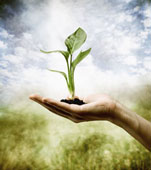
|
| SEEK "HEALTH & NUTRITION" SECTION (click) |

|
| PRESCRIBING NATURE |
| PRINT OUT FREE POSTER!!!! |
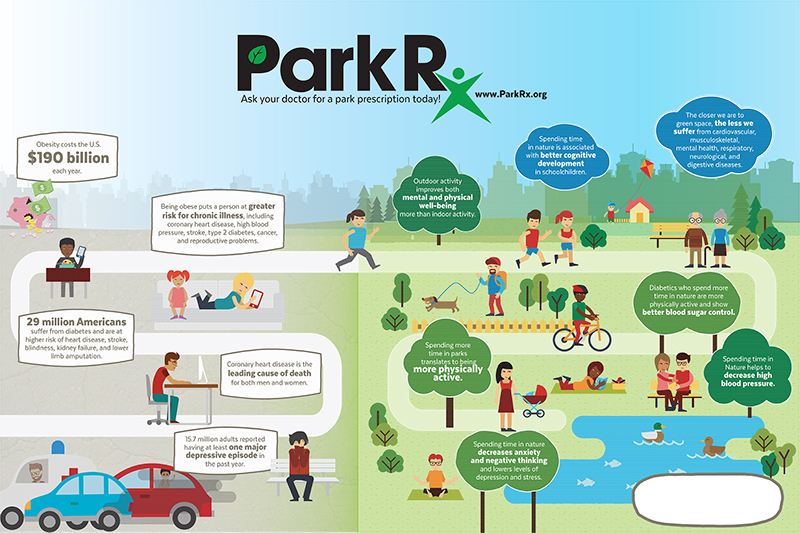
|
| PRINT OUT FREE POSTER!!!! |
"Living in Cities, Naturally" - Science Magazine
4. Food Origin Makes a Huge Difference!
Just as time kills taste, time also kills nutrients. The best, most nutritious source of food available to be eaten is fresh
picked food from that day. The second most nutritious food is if you eat local produce within 3 days of harvested. Depending
on the fruit, vegetable, or herb - in general terms, third is frozen food, and canned food is fourth. In last place is
produce that have traveled 5 or more days. Often it takes 2 weeks for certain food to reach one's table. So purchasing food
that is in season for where you live ensures maximum nutrition.
Eating raw produce offers the most nutrition. Steam or boil? Water leaches nutrients, so unless you are making a soup, steaming
is better. There are some foods that cooking add benefits. Tomatoes, when cooked and made into a sauce offer a higher source
of lycopene.
"Nutritional Comparison of Fresh, Frozen and Canned Fruits and Vegetables." - Journal of Science of Food & Nutrition
Preserving the Nutrients of Food with Proper Care - The New York Times
"Fresh vs. Frozen Vegetables: Are we giving up nutrition for convenience?"
"Vitamins / Nutrients In Canned, Frozen, & Fresh Veggies"
"Can tomato sauce protect your heart?"
"Tomato Sauces, Rich in Lycopene, May Reduce Risk of Prostate Cancer"
"Tomato Sauce Lycopene" Articles Pub Med - National Institutes of Health
Watch Documentary: "Food Inc."
Why Eat and Grow Organic Plants?
Definition of "Organic"
| USDA |

|
| ORGANIC PRODUCTION CLEARINGHOUSE |

|
| NATIONAL ORGANIC PROGRAM (USA) |

|
| ORGANIC CERTIFICATION |
Dollars and cents are important. Taste and saving money is a winning combination. It used to be that everything one bought
in a grocery store or farmer's market was organic. The word was never used, because there was no need to differentiate one
class of growing to another. With the advent of pesticides and insecticides, and in more recent history genetically modified
foods, the word "Organic" has gained prominence.
Organic foods cost more because the ratio of fully grown produce eaten by various creatures is larger. Not all, but organic
farms tend to be smaller. The price of organic foods has dropped, but have not reached levels comparable to "conventional"
costs. Demand for organic products has risen steadily over the past 20 years due to the introduction of genetically modified
engineering. Animal and animal by-products have seen a rise in hormone use to keep those animals healthy. But studies have
shown for example, that girls are hitting puberty, most visibly developing breasts at earlier and earlier ages.* So eating
organically is important.**
*Consumer Concerns About Hormones in Food - Cornell University
** "Should I Purchase Organic Foods?" -- USDA
** Organic Production/Organic Food: Information Access Tools
5. Economically Viable.
If you want a garden that grows much of what you already eat and are on a budget,
below is a basic formula.
End Food Deserts:
A food desert is a place where accessibility to fresh fruits and vegetables, is not readily available. It is usually
measured by walking distance accessibility compared to fast food and discount grocery stores that usually do not sell produce.
Your Food Bill:
Get a sense of what you spend on produce via your food bill by collecting all receipts for at least one full month (realizing
that season plays on what is available, so think about what you eat/purchase in other seasons). Find some older receipts if
you kept them.) For garden, count all the fruit, herbs, spices, and vegetables (So, for example, if you have a bag of onions,
count how many in the sack). The receipt should already give you the weight. For frozen foods, write down the weight on the
receipt.
Sample result:
4 lbs of Blueberries
10 lbs of Roma tomatoes = 23 tomatoes
7oz basil
3 lbs Spanish onions = 5 onions
1 watermelon=
1 butternut squash
3 garlic bulbs
5 lemons
10 heads of lettuce
6 green peppers
1 lb banana peppers = 7 peppers
4 lbs of spinach = 4 bunches of spinach
Then plan what you will grow via your hardiness zone (see Agriculture Directory page). There are a lot of variables as to
how much to plant,
1. Plant 5 times what you would eat in 4 months. Not every seed germinates.
2. Would like to trade?
3. Freeze? Can?
4. Donate produce to a local food bank?
Free Seeds
You will never look at fruit and vegetables again! Start by purchasing official "organic" food. Seek information as to
how to dry, collect, and store seeds via menu to the left.
There are often free seed programs via your local government department of parks and recreation. Call to ask.
Just like rechargeable batteries, the cost will seem high at first, purchasing proper nutrients (fertilizer), seeds, and
watering, but in the long run, you will see that you have saved a lot of money, eat well, connected to earth and nature, teaching
your family patience (things take time to grow and mature properly - disconnects instant gratification, technology....), and
feel better about yourself, knowing that you earned your keep through work.
6. IT'S FUN!
There is nothing more fun than playing in the dirt, is there? Bring out your inner child: Dig! Build! Look for four leaf
clovers! Choose a great pair of pants of which to get grass stains on! Pick your favorite old shirt, that, well, has some
built in "air conditioning." (holes)
Seriously, there is nothing more gratifying than a hard days' work preparing a garden, building a bat house, constructing
a compost bin.... I bet you'll agree that the day or days you work on various projects are more satisfying and productive
than even your regular job. And the best part is because you have planned with your family, neighbors, and friends when you
are to start and finish each project, accomplishment is 100 percent!
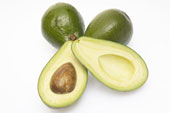
|

